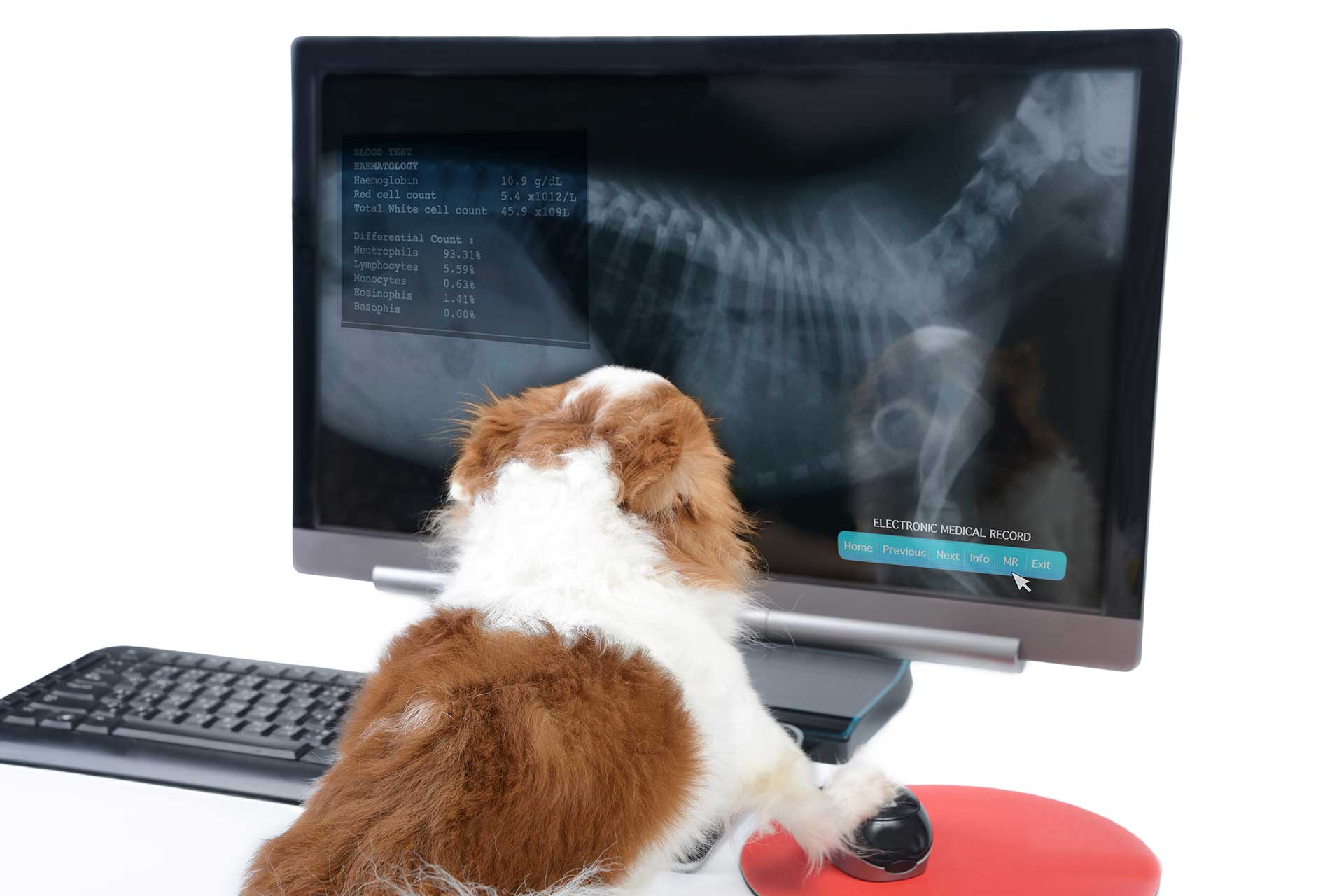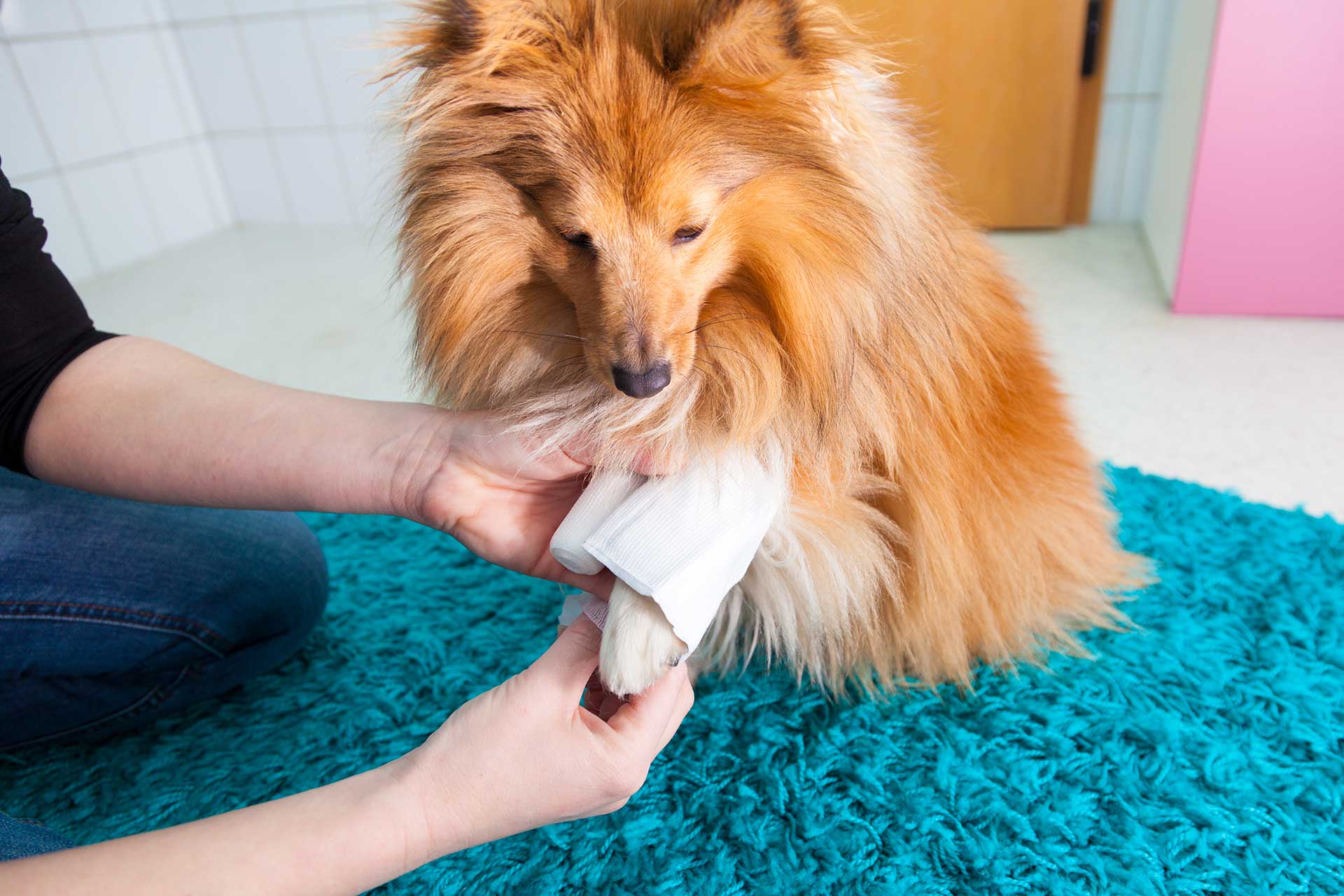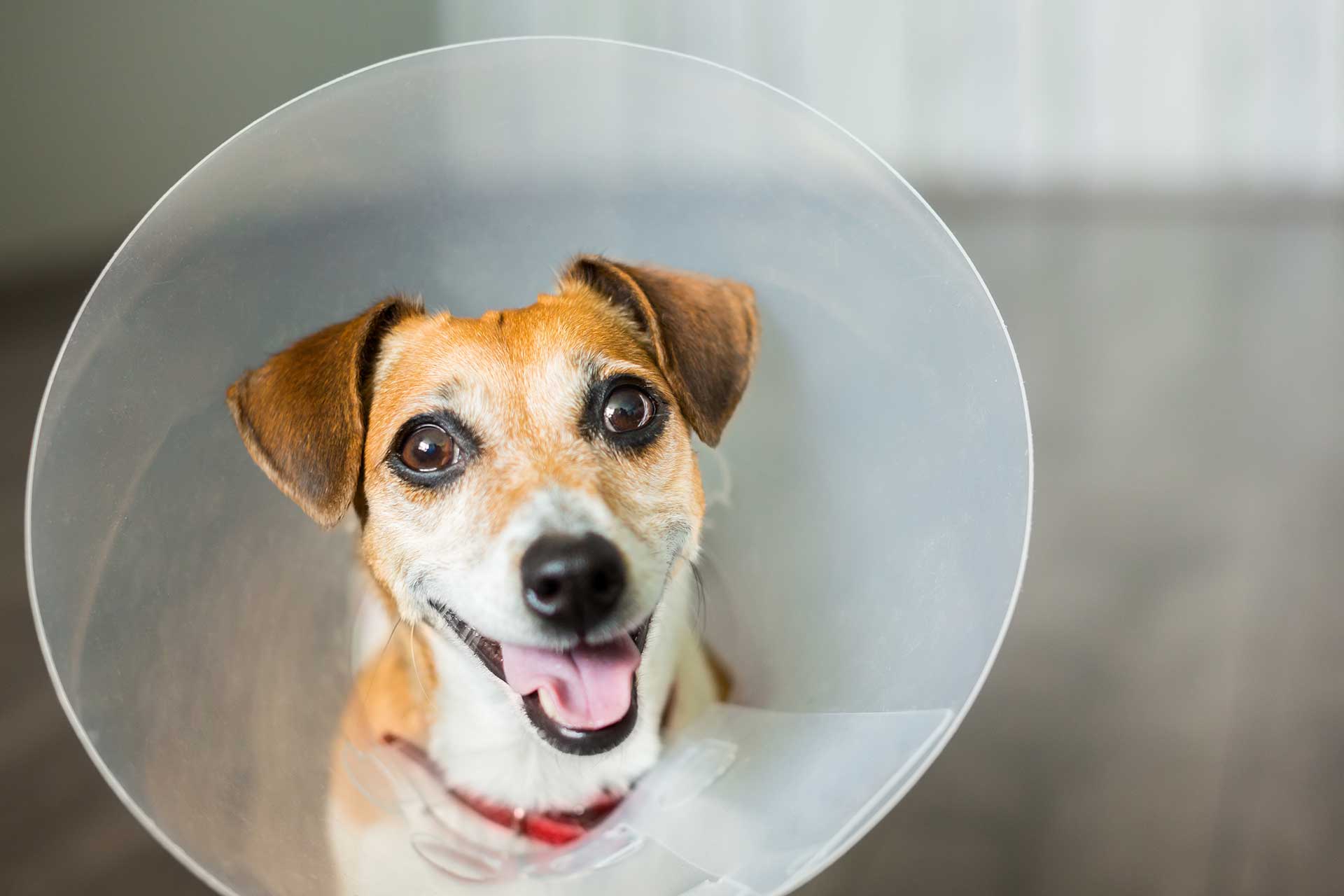Pet Vaccinations
We all want our furry family members to live a long, healthy life. Responsible pet care means more than providing a safe home with regular food: pet vaccinations give them the best chance to avoid sickness and disease from the time they are young.
Keeping pet vaccinations up to date prevents your pet from contracting preventable diseases and boosts their immune system.
But how often should you vaccinate? What are the different types of vaccinations for puppies and kittens? Do adult cats and dogs need vaccinations?
Vetwest want to help protect your companion and offer vaccinations for kittens, puppies, cats and dogs. Even rabbits and ferrets need vaccinations and we can help with that too!
Why Do I Need to Vaccinate My Pet?
Disease prevention– Regular pet vaccinations prevent your pets from succumbing to the contagious bacteria and viruses they encounter in other animals and their environment, some of which can be fatal.
Immune boosting – Young animals take months to develop immune defences, making them vulnerable to diseases which can be prevented with pet vaccinations.
Protected pets, protected home– Kitten and puppy vaccinations ensure your other pets, and your family, are protected from the spread of preventable diseases that can find their way into the home.
- Vetwest Puppy Preschool & Dog Training
To give your furry friends the best start in life Vetwest provide puppy training courses for 6 to 15 week old puppies in this critical development stage. It is a requirement for Puppy Preschool that your dog be up to date with their vaccinations for the safety of all class participants. - Cat Boarding
Looking for a comfortable, safe home away from home for your cat? Cats in the City is conveniently located in South Perth and Wanneroo, all in the complete with the care of Vetwest healthcare professionals. All cats who stay with us are required to be up to date with their vaccinations and parasite control.
How Often Does My Pet Need to Be Vaccinated?
Vaccinations should start early and follow a 10-week course of two immunisations plus a final booster. Similar schedules are recommended for puppy vaccinations and kitten vaccinations while your fur baby is 6 to 16 weeks old.
Annual boosters will be required throughout your pet’s life. Your Vetwest veterinarian will recommend a booster schedule during a regular health check-up suitable for your pet.
Dog Vaccinations
Dog vaccinations start from puppyhood and continue throughout your dog’s life with regular boosters. ‘Core’ puppy vaccinations protect your dog from the most common life-threatening diseases making them essential for every dog. ‘Non-core’ vaccines guard against other diseases that cab be encountered in parks, kennels and daycare facilities.
Core & Non-Core Vaccines
Core vaccines – essential for healthy canine companions include:
- Canine distemper virus
- Canine adenovirus
- Canine parvovirus
These are generally grouped into a single immunisation called the C3 vaccine.
Non-core vaccines – protect against:
- Canine cough (also referred to as kennel cough), a contagious disease picked up in group situations
- Parainfluenza virus
- Bordetella bronchiseptica
We recommend dog owners give their pets all vaccinations for the best odds protection against disease.
When Should I Vaccinate My Puppy/Dog?
Puppy vaccinations – Vetwest offers an early socialisation vaccine program which means that your puppy can begin to explore the world at 10 – 12 weeks after their second vaccination. Vaccination courses for young dogs at Vetwest are between 6 to 16 weeks, with annual boosters every year after.
- First vaccination at 6 weeks for distemper, hepatitis and parvovirus.
- Second vaccination between 10-12 weeks for distemper, hepatitis and parvovirus, and non-core vaccines.
- Third vaccination at 16 weeks for distemper, hepatitis and parvovirus.
Dog vaccinations – Adult dogs require boosters throughout their lives to top up their protection against common diseases:
- Annual boosters for distemper, hepatitis and parvovirus, and non-core vaccines
Your Vetwest healthcare professional will recommend a booster schedule for your dog based on their lifestyle and vulnerability to disease.
Disease Prevention
What are you protecting your dog against with vaccinations?
- Canine distemper virus is a highly contagious, often fatal viral disease spread via nose to nose contact with infected animals, or sniffing urine, vomit or faeces from an infected animal
- Canine adenovirus or hepatitis is a liver disease which spreads to the lymphatic system and damages the liver and kidneys, often contracted by inhalation or ingestion of an infected droplet
- Canine parvovirus is a viral disease affecting the gastrointestinal tract, bone marrow and lymphatic systems, contracted by contact with the saliva, vomit, or faeces of an infected animal and is often fatal
- Parainfluenza (viral) and bordetella cause bronchial inflammation, commonly called kennel cough or canine cough, characterised by a sudden onset of a dry hacking cough that sticks around for a week, however, can lead to complications like pneumonia.
Cat Vaccinations
Kittens normally receive essential immune-building antibodies from their mother’s milk for the first few weeks of their lives. This offers a temporary immune boost but to protect against infectious diseases after weaning, kittens and cats require regular vaccinations.
A 10-week immunisation course followed by annual boosters will help your feline friend to keep adventuring (or curling up on your lap) for years to come.
Core & Non-Core Vaccines
Core vaccinations for kittens and cats include:
- FVRCP or feline viral rhinotracheitis (herpes), calicivirus, and panleukopenia
This is administered as a single vaccine with annual boosters.
Non-core feline vaccines include:
- FeLV or feline leukaemia virus
- FIV or feline immunodeficiency virus
- Chlamydophila
- Rabies
Passing contagious diseases to humans is rare, however, immunisations will guard against the chances of your cat passing on a communicable disease.
When Should I Vaccinate My Kitten/Cat?
Kitten vaccinations – Vaccines should be administered before your kitten turns two months old with further immunisations and boosters over 10 weeks:
- First vaccination at 8 weeks
- Second vaccination at 11 to 12 weeks
Cat vaccinations – One year on from kitten vaccinations your Vetwest veterinarian will recommend a booster schedule that depends on how long each vaccine is designed to last:
- Annual boosters are recommended for adult cat vaccinations
Cats who spend time outside will need boosters and your Vetwest veterinarian will advise of new diseases requiring a cat vaccination.
Disease Prevention
Protect your feline against theses fatal diseases with kitten and cat vaccinations:
- FVRCP or feline respiratory disease (also referred to as cat flu, herpes virus, rhinotracheitis or calicivirus) is brought on by stress and close contact with infected cats, leading to flu-like symptoms
- Feline panleukopenia, also known as enteritis, is a rapid onset and often fatal disease spread by direct faecal and oral contact or indirectly by contaminated objects like food bowls, bedding, floors and contact by hands
- FeLV or feline leukaemia virus attacks the immune system making cats more susceptible to infection and illness as well as prone to developing certain cancers, and is transmitted by mutual grooming, sharing food and water, mating or from bites from infected cats
- FIV or feline immunodeficiency virus is a blood born viral infection causing Feline AIDs which is potentially fatal, with the infection spreading by bite wounds from other cats or transmitted by a mother cat to her kittens across the placenta or through her milk
- Chlamydophila is spread by direct contact with other cats causing conjunctivitis in young kittens and upper respiratory tract disease
- Rabies while fortunately non-existent in Australia is a fatal virus transmitted by bites from infected animals so should be a consideration if you are moving your cat overseas.
Side Effects or Reactions
Serious side effects from pet vaccinations are uncommon however sometimes minor reactions can occur, normally in the hours immediately after immunisation. Monitor your pet for signs of a reaction:
- Swelling or sensitivity around the vaccinated area
- Fever
- Weakness or listlessness
- Hives or swelling on the face/paw
- Difficulty breathing
- Vomiting or diarrhea
- Appetite loss
- Collapse
Most side effects will pass within a day. If your puppy or kitten shows signs of side effects for more than two days please contact Vetwest as soon as possible for professional treatment advice.
Frequently Asked Questions About Vaccinations
- What happens if my pet misses a vaccination?
Depending on how old your pet was when it received their first vaccine your Vetwest healthcare professional may recommend additional boosters, or there may be no action required. For pets over a year old a booster may or may not be required, although for pets who miss a vaccination around twelve weeks your Vetwest vet may recommend two boosters. Contact us if you are unsure about your pets previous vaccinations. - What if my pet has had reactions to vaccinations before?
Pet vaccinations are given depending on the individual animal. In the case of a previous allergy or side effect, it is best to discuss options with your vet to manage disease risk and avoid any reactions. - Can I vaccinate my pet if they are pregnant or lactating?
As a general guideline, it is best to avoid medication during pregnancy or lactation. Speak to your Vetwest vet about protecting your pregnant or lactating pets. - What about vaccinations for Guinea Pigs, Ferrets and Rabbits?
Regular health check-ups are the cornerstone of a preventative health program for your pocket pets too. Vaccinations are very important because they will protect your pocket pet from disease especially for Rabbits and Ferrets. Guinea Pigs don’t require vaccinations at this time.
- Are Vaccinations included in the Total Wellness Plan?
Vaccinations, boosters, check-ups and unforeseen issues can start to add up. Vetwest’s Total Wellness Plan includes your pet’s annual vaccination and allows pet owners to save on annual healthcare bills including:- Annual vaccination
- 12 months intestinal worming
- 12 months heartworm protection
- 12 months flea prevention
- Unlimited standard consultations and advice
- 20% discount on cat boarding for Classic Plan Cat members
- $50 voucher to use during the year for professional veterinary services (such as blood tests, surgery or having your pet’s teeth cleaned). Classic members only.
Find a Vetwest veterinary clinic near you in Perth for kitten vaccinations, puppy vaccinations, or adult dog and cat boosters.






